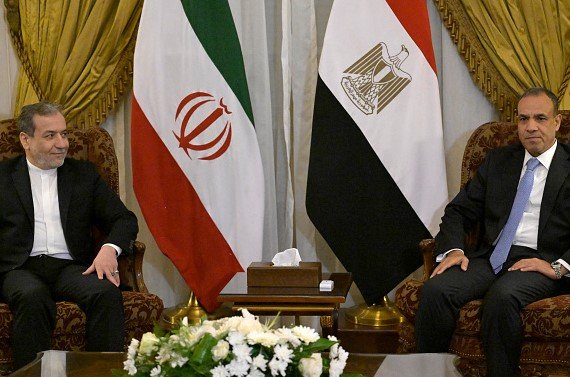In a key meeting on the sidelines of the Arab Islamic Summit in Doha, Qatar, Iranian President Masoud Pezeshkian and Egyptian President Abdel Fattah el Sisi highlighted the need for closer bilateral relations and greater unity among Muslim nations. The talks on September 15, 2025, focused on countering Israeli actions in the region, with both leaders expressing hope for quick progress in formal ties between Tehran and Cairo.
This discussion comes amid rising tensions in the Middle East, where calls for Islamic solidarity have grown louder. The presidents stressed that stronger cooperation could help address shared challenges and support Palestine.
Summit Highlights and Bilateral Talks
The extraordinary Arab Islamic Summit in Doha brought together leaders from across the Muslim world to tackle urgent regional issues. Pezeshkian and el Sisi used the event to hold direct talks, marking a significant step in warming relations between the two countries.
During the meeting, Pezeshkian voiced confidence in soon establishing official diplomatic channels. He pointed to the shared cultural and historical bonds as a foundation for mutual benefits. El Sisi echoed this view, noting the potential for joint efforts to boost stability.
The summit itself addressed broader concerns, including the Gaza crisis and Israeli strikes. Attendees included figures from Pakistan, Malaysia, and other nations, all pushing for collective action.

Key Statements on Islamic Unity
Both leaders made clear statements on the importance of unity among Muslim countries. Pezeshkian said that cohesion is the best way to confront aggression and aid oppressed groups like Palestinians.
El Sisi called for a unified stance against what he described as escalating crimes by Israel. He urged practical steps to strengthen ties among Islamic states.
These remarks align with recent calls for a Muslim military alliance, similar to NATO, to respond to regional threats. Such ideas have gained traction in light of ongoing conflicts.
Experts note that these statements reflect a shift toward more collaborative foreign policies. They could lead to joint initiatives in security and economic areas.
Historical Context of Iran Egypt Relations
Iran and Egypt have a complex history, with formal ties severed since the 1979 Iranian Revolution. Over the years, differences over regional alliances and politics kept them apart.
However, thawing began in recent times. Diplomatic exchanges increased after Egypt mediated talks between Iran and the International Atomic Energy Agency in 2025.
This mediation led to a cooperation agreement signed in Cairo on September 9, 2025. It showcased Egypt’s role in bridging gaps on nuclear issues.
Cultural and economic links have persisted informally, with trade volumes growing steadily. In 2024, indirect commerce reached over $1 billion, according to trade reports.
Recent Developments Boosting Ties
Several events in 2025 have accelerated progress between Iran and Egypt. Foreign ministers met in Cairo earlier in September to review bilateral relations and regional matters.
This followed Iran’s hosting of the International Islamic Unity Conference in August, where unity themes were central.
Direct flights for tourism between the two countries are set to start soon, as confirmed in June 2025 talks.
Here are some key recent milestones:
- June 2025: Announcement of political consultations to deepen ties.
- August 2025: Joint calls for Islamic action against Gaza violence.
- September 2025: IAEA deal mediated by Egypt, restoring Iran’s cooperation with the agency.
These steps indicate a practical push toward normalization.
Potential Areas for Cooperation
Iran and Egypt see opportunities in various sectors. Economic partnerships could focus on energy, trade, and infrastructure.
In security, joint efforts might address terrorism and regional stability. Cultural exchanges could strengthen people to people connections.
A table outlining potential cooperation areas:
| Area | Potential Benefits | Examples |
|---|---|---|
| Economy | Increased trade and investment | Energy deals, tourism boosts |
| Security | Unified response to threats | Military exercises, intel sharing |
| Culture | Enhanced exchanges | Educational programs, heritage projects |
| Diplomacy | Stronger regional voice | Joint summits, mediation roles |
This framework could guide future agreements.
Regional Implications and Future Outlook
Stronger Iran Egypt ties could reshape Middle East dynamics. They might encourage other Muslim nations to join in unified fronts against common challenges.
Analysts predict this could lead to broader alliances, like the proposed Islamic NATO, amid Israel’s actions in Gaza and Lebanon.
However, challenges remain, including external pressures from Western powers and internal political hurdles.
Looking ahead, experts believe sustained dialogue will be key. With both presidents committed, 2026 could see formal embassy reopenings.
The push for Islamic unity and bilateral ties offers hope for peace. Readers, share your thoughts on this development in the comments below. What do you think it means for the region? If you found this article helpful, pass it along to others interested in Middle East news.
